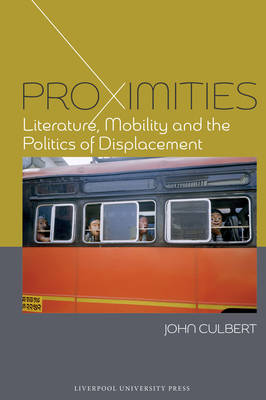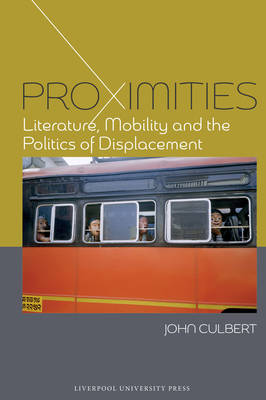
- Retrait gratuit dans votre magasin Club
- 7.000.000 titres dans notre catalogue
- Payer en toute sécurité
- Toujours un magasin près de chez vous
- Retrait gratuit dans votre magasin Club
- 7.000.0000 titres dans notre catalogue
- Payer en toute sécurité
- Toujours un magasin près de chez vous
Proximities: Literature, Mobility, and the Politics of Displacement
John CulbertDescription
Ebook available to libraries exclusively as part of the JSTOR Path to Open intiative.
As the era of high globalization has given way to a time of resurgent nationalisms, the discourse of travel has undergone significant change. The previous era's keywords of freedom, mobility and connection increasingly vie with a language of borders, security and national identity. In this study of the politics of modern travel and migration, John Culbert shows how today's contradictions of global mobility are an abiding feature of modernity and an outgrowth of coloniality as an ongoing practice of land theft, displacement and dispossession.
Focussing on English, American, and Anglophone literary writing on travel, and spanning early twentieth-century tourism to present-day refugee narratives, Proximities examines contexts and situations in which travellers of discrepant rights and privileges meet, arguing that such scenes of 'proximity' yield unforeseen prospects for ethical rapports and political solidarity. In so doing, Culbert makes a strong case for humanistic and interdisciplinary critical study at a time when research on mobility and migration is dominated by social-scientific knowledge. Pointing out that the contradictions of global mobility are reflected in the academy itself, Culbert advocates for a reflexive, decolonial critique of the conditions of knowledge production today. Proximities is a vital contribution to current debates on citizenship, human rights, decoloniality and the right to move.
Spécifications
Parties prenantes
- Auteur(s) :
- Editeur:
Contenu
- Nombre de pages :
- 312
- Langue:
- Anglais
- Collection :
- Tome:
- n° 13
Caractéristiques
- EAN:
- 9781836242925
- Date de parution :
- 28-04-25
- Format:
- Livre relié
- Format numérique:
- Genaaid
- Dimensions :
- 156 mm x 234 mm
- Poids :
- 612 g

Les avis
Nous publions uniquement les avis qui respectent les conditions requises. Consultez nos conditions pour les avis.






